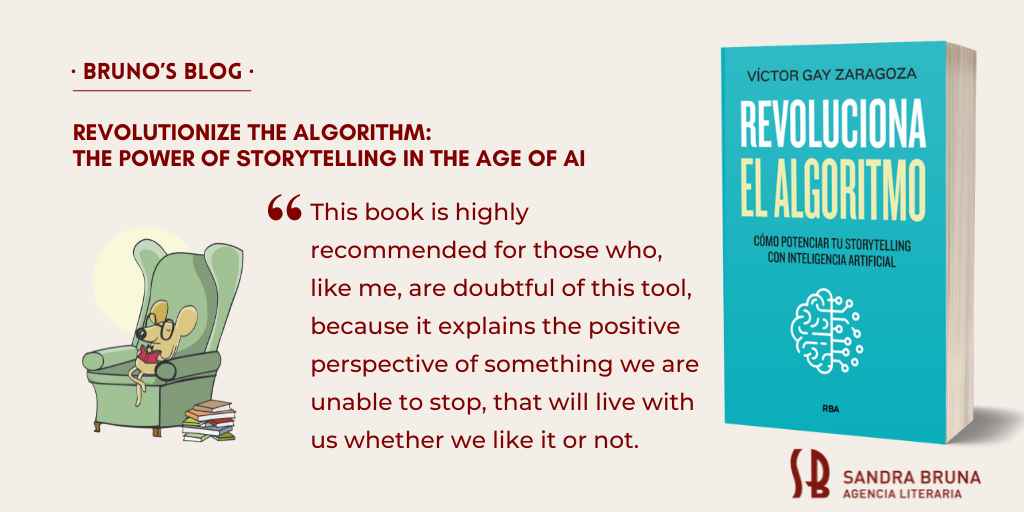From social media to content platforms, artificial intelligence (AI) and algorithms shape what we see, read, and consume. In this landscape, the ability to tell authentic and compelling stories is more crucial than ever. That’s where ‘Revolutionize the Algorithm’, the latest book by Víctor Gay Zaragoza, becomes an essential read.
One of the biggest fears in the digital era is that AI might replace human creativity in content creation. Why tell stories if machines can do it for us? Víctor challenges this concern with a bold perspective: instead of competing with AI, we should learn to use it to amplify our creativity and set ourselves apart.
‘Revolutionize the Algorithm’ is a practical guide to integrating AI into your communication strategy while staying true to your authenticity and originality. Through real-world examples and effective strategies, the author teaches us how to enhance our storytelling skills, leverage our personal experiences to craft inspiring narratives, and train AI to work in our favor.
Storytelling is more than just a marketing tactic or literary device—it’s a powerful tool for connecting with audiences, conveying values, and making an impact. In an age overflowing with content, well-crafted stories stand out. The author knows this firsthand, drawing from his extensive experience in communication and brand storytelling.
If you want to stand out in a world where content is generated at an unprecedented pace, this book is for you. You’ll learn how to create authentic and meaningful stories in the age of AI, use artificial intelligence as a creative ally rather than a threat, and optimize your personal and professional narrative to shine on any platform.
Technological progress should help us, but we need to know how. Well-used, just as Victor tells us, they can be a spectacular progress tool. we should read books such as this one to know, also, all the dangers of misusing it, especially in contexts where the boundaries are vulnerable, such as writing.
I’m not a big fan of AI and I still have much respect for it, but after reading Victor’s book I understand that if it’s well used it can be a very useful tool that won’t replace human beings and their creativity but will help in many different ways, such as saving time and impulsing imagination.
This book is highly recommended for those who, like me, are doubtful of this tool, because it explains the positive perspective of something we are unable to stop, that will live with us whether we like it or not. And, in consequence, we need to make it ours, bring it to our side without harming anyone, taking advantage of all the benefits it offers.

